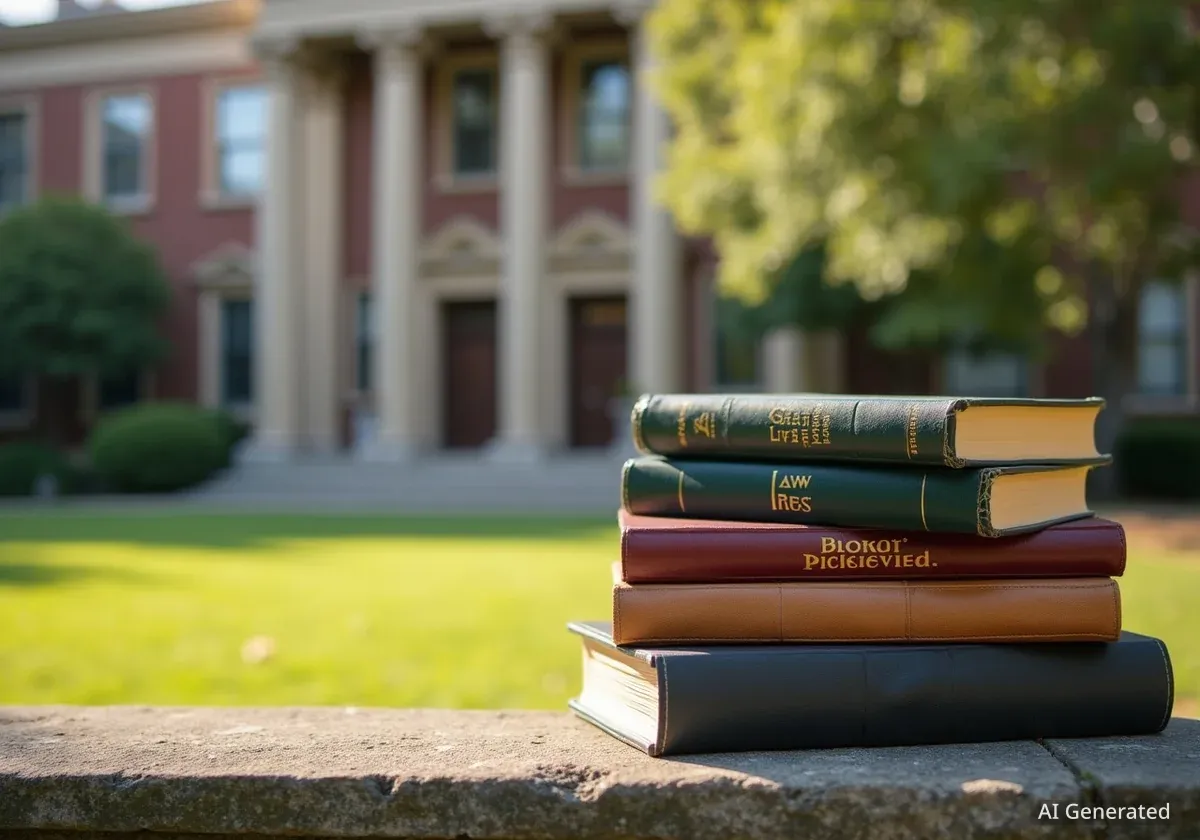A federal district court has ordered the University of South Dakota to reinstate a tenured art professor who was placed on leave after making controversial comments on his personal Facebook page. The judge ruled that the professor's speech was protected as he was speaking as a private citizen on a matter of public concern.
Key Takeaways
- A South Dakota district court judge issued a temporary restraining order against the University of South Dakota.
- The order requires the university to reinstate tenured art professor Michael Hook.
- Hook was placed on leave with intent to terminate following a Facebook post about the death of Charlie Kirk.
- The court determined Hook's comments were made as a private citizen and addressed a matter of public concern, protecting his speech.
Professor Placed on Leave After Controversial Comments
The case involves Michael Hook, a tenured professor of art at the University of South Dakota. On September 10, following the death of political figure Charlie Kirk, Hook made a post on his personal Facebook account.
In the post, Hook expressed a lack of sympathy for Kirk, referring to him as a "hate spreading Nazi." He questioned the public outcry over Kirk's death compared to other violent events, such as school shootings and attacks on police officers. The post concluded with the statement, "I have no thoughts or prayers for this hate spreading Nazi. A shrug, maybe."
Hook later deleted the post and issued an apology. However, two days after the initial post, the university placed him on administrative leave with an "intent to terminate" his employment.
University's Justification for Action
The University of South Dakota's administration cited two specific policies in its decision. A letter from Bruce Kelley, the dean of the College of Fine Arts, informed Hook that his post violated university rules concerning employee conduct. The policies mentioned pertained to "neglect of duty, misconduct, incompetence and abuse of power" and the expectation that employees, when speaking publicly, should "show respect for the opinions of others" and clarify when they are not speaking on behalf of the institution.
Federal Judge Intervenes with Restraining Order
In response to the university's disciplinary action, Hook sought legal intervention. The case was brought before South Dakota district court judge Karen Schreier, who issued a temporary restraining order in favor of the professor.
The court's decision directly addresses the nature of Hook's speech and its relationship to his employment at the public university. The ruling provides a clear distinction between professional duties and personal expression.
"The court concludes that Hook spoke as a citizen and his speech was on a matter of public concern," Judge Schreier wrote in the order.
This finding is central to First Amendment protections for public employees. The court determined that Hook's comments were not part of his official responsibilities as a professor.
Legal Reasoning Behind the Court's Decision
The university argued that because Hook’s personal Facebook page identified him as a professor at the University of South Dakota, his speech was tied to his professional role. Judge Schreier rejected this argument as insufficient to classify the post as official speech.
Private Citizen vs. Public Employee
The judge's analysis focused on whether Hook was speaking as a public employee or a private citizen. The court found that making comments on a personal social media account about a political figure falls outside the scope of a professor's job duties.
Key Legal Finding
Judge Schreier's written opinion stated, "Defendants note that Hook’s Facebook page identified himself as a professor at the University of South Dakota … but this alone does not show that a post made on his personal Facebook account is speech that arises from Hook’s duties as a professor."
This ruling reinforces the legal precedent that public employees do not forfeit all of their First Amendment rights when they accept government employment. The key distinction is whether their speech is made pursuant to their official duties.
Immediate Effects and Next Steps
The temporary restraining order has immediate consequences for the university's disciplinary process. A meeting between Hook and university officials, which was scheduled for September 29 to discuss his termination, was blocked by the court.
The order mandates Hook's full reinstatement to his position as a tenured professor. It will remain in effect pending further legal proceedings.
The next step in the case is a preliminary injunction hearing, which has been scheduled for October 8. This hearing will determine whether the protections granted by the temporary restraining order will be extended for a longer duration while the case proceeds.
A Broader Pattern
According to the original report, the disciplinary action against Professor Hook is not an isolated incident. He is reportedly one of dozens of faculty and staff members at various institutions who have faced punishment for comments made regarding Charlie Kirk's death, highlighting a growing tension between personal speech and professional conduct in academia.
The outcome of the upcoming hearing will be closely watched by academics, university administrators, and civil liberties advocates, as it could further clarify the boundaries of free speech for public university employees in the digital age.





